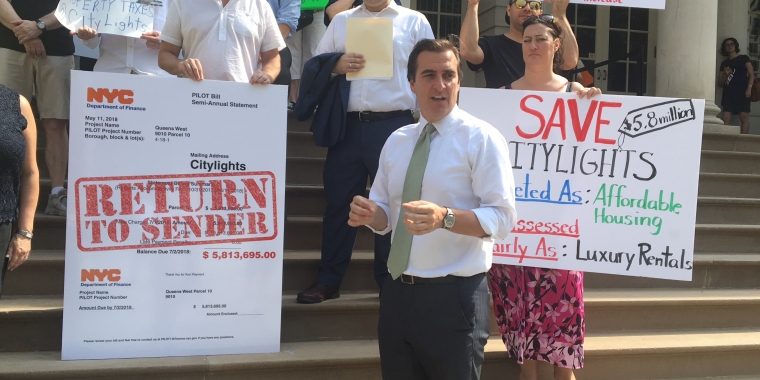
Times Union: Gianaris seeks overhaul of judicial nominations to find more diverse candidates

ALBANY — State Senate Deputy Majority Leader Michael Gianaris is urging the Commission on Judicial Nomination to look beyond "career jurists and prosecutors" and to consider a diverse pool of candidates for an impending vacancy on the state's highest court.
The vacancy on the Court of Appeals is being created by the retirement of Judge Eugene M. Fahey, who turns 70 this month — the mandatory age of retirement for judges. He will be required to step down from the bench on Dec. 31.
Gianaris said it's critical for the nominating commission to seek out candidates "who have worked in civil rights, indigent defense, housing and immigration," which he characterized as key issues in New York.
"I am urging this panel to seek out an increasingly diverse slate of recommended nominees and seek meaningful public input as part of your process to ensure the bench is representative of the people it serves," Gianaris wrote in a letter to the commission this week. "It is my strong belief your future recommended candidates should add to the diversity of the court – looking beyond simply career jurists and prosecutors – including attorneys from a variety of professional backgrounds, personal lived experiences, and areas of the state."
Fahey will be the second member of the Court of Appeals to retire this year. Judge Leslie Stein, who was confirmed to the court on the same day as Fahey in February 2015, left in June. Former Gov. Andrew M. Cuomo appointed Madeline Singas to succeed Stein on the seven-member court, his eighth appointment to the Court of Appeals in three terms as governor. Singas is a former Nassau County district attorney.
Alice L. Fontier, president of the New York State Association of Criminal Defense Lawyers, supports the call by Gianaris for changes to the judicial nominating process.
"A call for change and for a more diverse court from someone in his position of leadership is important to changing what has traditionally been a back-door political process," Fontier said. "The Court of Appeals is too important to be decided without real input and transparency."
Gianaris also questioned the antiquated rating system that the commission has relied on that merely lists judicial candidates as "qualified" or "not qualified."
"I believe we need to fully revisit what constitutes a qualified Court of Appeals jurist – surely, a documented history of legal excellence, but also leadership in varied areas of law, and a life of service to others," he wrote.



